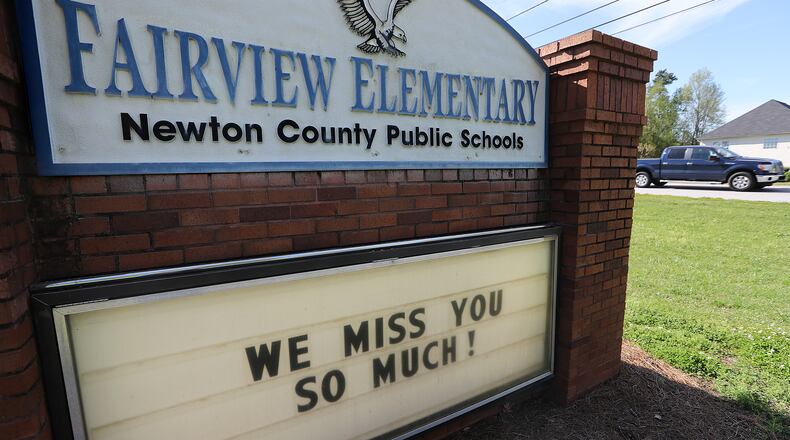Reports of suspected child abuse and neglect in Georgia have dropped by half since the closure of public schools and cancellation of extra-curricular activities as the state attempts to slow the spread of the novel coronavirus.
Gov. Brian Kemp on Wednesday announced that children won't return to school for the rest of the academic year and a statewide shelter-at-home order will go into effect Friday.
Georgia Division of Family and Children Services officials said the drop in reporting is likely due to the fact that people who are mandated by state law to report suspicions, including school staff members, are no longer having daily contact with children.
DFCS Director Tom Rawlings said reports of suspected abuse and neglect have dropped by 50% since schools closed March 18. He said similar drops in reporting happen when students are out of school for the winter holidays and summer breaks.
Kemp called attention to the trend shortly before announcing that schools would remain closed.
“Teachers and administrators are often the first ones to see the signs of abuse, and with schools closed, we must remain vigilant about this problem and work to remedy it,” Kemp said.
There were 122 reports of suspected child abuse the first day schools were closed, according to DFCS data. A week prior, there were 292 reports made.
There were 12,427 reports of suspected child abuse and neglect in March. That’s down from 15,062 in February and 16,764 in March 2019.
Being in close quarters at home can increase the chances of abuse, experts say.
“We have been told by one Atlanta-area hospital that they are seeing a 15 percent increase in domestic violence cases in their facility,” Kemp said. “This is disturbing and cannot be tolerated.”
Rawlings said he supports the steps being taken to slow the spread of COVID-19, such as closing schools and sheltering in place, but is aware the measures can put pressure on families.
“Being isolated from friends, family, and routine activities during this time can be stressful on families, and we know all families need supportive social networks to break through the harmful effects of isolation,” Rawlings said. “As we practice social-distancing, we need to be mindful to stay engaged.”
Rawlings is encouraging the public to keep an eye on the children in their circles.
“Communities that support parents and take collective responsibility for the welfare of children are the best prevention for child maltreatment,” he said.
To report suspected child abuse or neglect, call 855-422-4453. Those seeking help related to domestic abuse can call 800-334-2836.
About the Author
Keep Reading
The Latest
Featured




